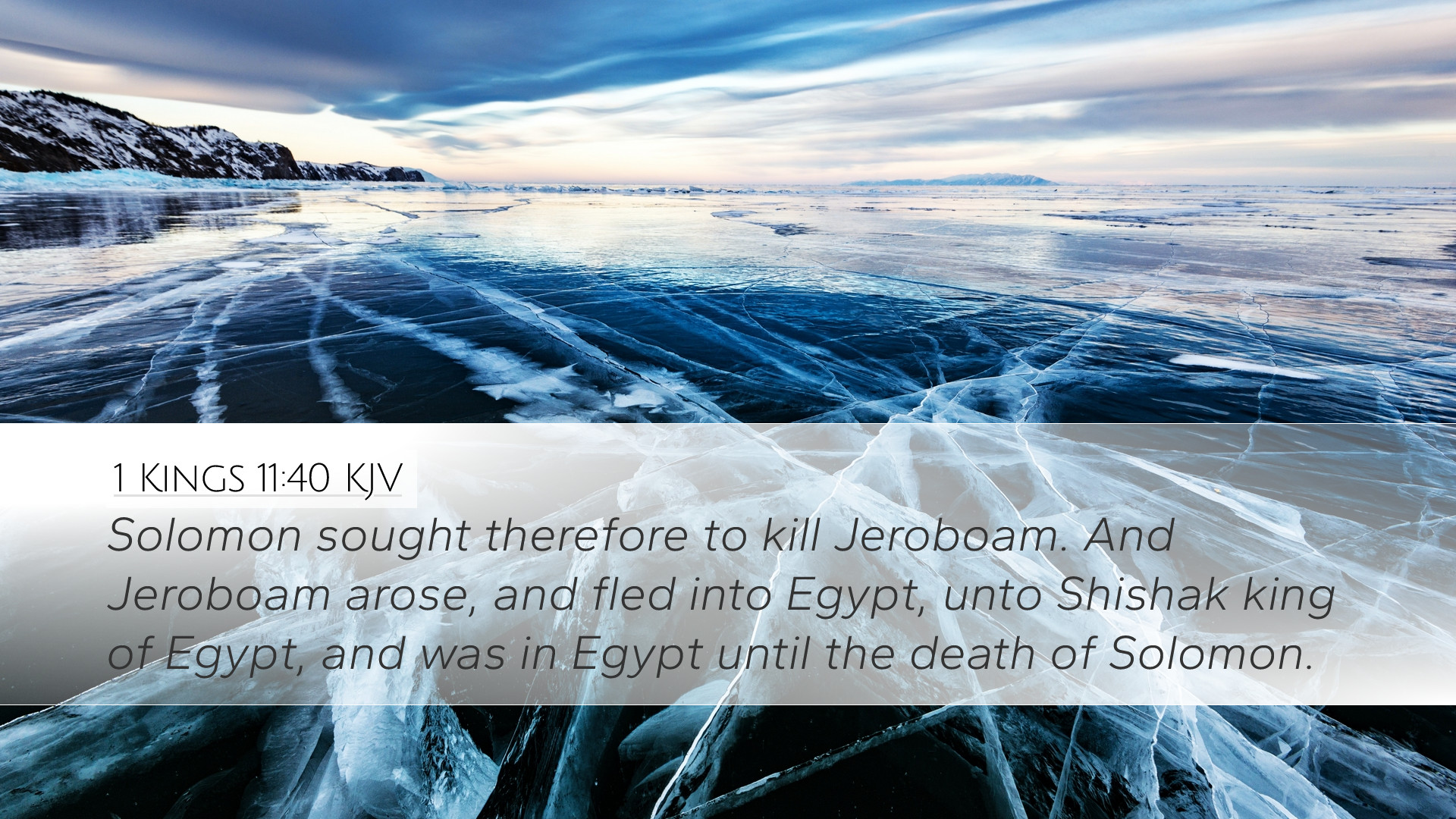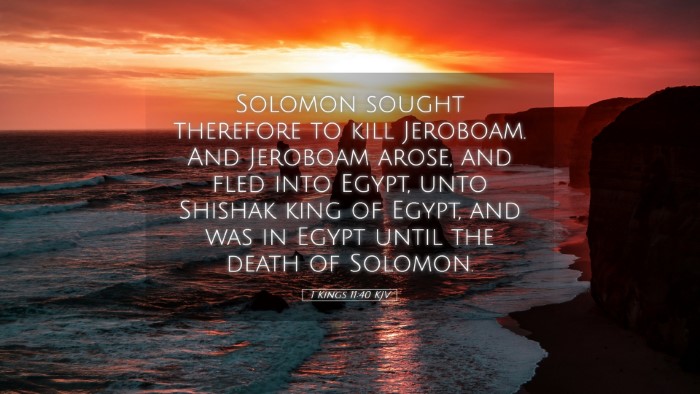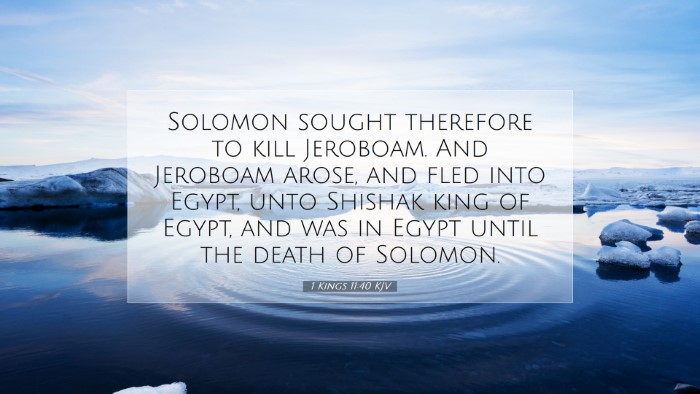Commentary on 1 Kings 11:40
Verse Text: "And Solomon sought therefore to kill Jeroboam. And Jeroboam arose, and fled into Egypt, unto Shishak."
Contextual Background
This verse occurs at a critical juncture in Israel's history, signaling a turning point after the reign of King Solomon. The preceding chapters describe Solomon's immense wisdom, wealth, and the grandeur of his reign, but they also underscore his tragic spiritual decline due to his foreign wives and idolatry. This decline sets the stage for division within the kingdom.
Summary of Key Themes
- The Emergence of Jeroboam: Jeroboam is introduced as an important figure who rises against the backdrop of Solomon's failings. He is a servant of Solomon and eventually becomes the first king of the northern tribes of Israel after the kingdom splits.
- The Threat to Solomon's Reign: Solomon’s attempt to kill Jeroboam reflects the tension and fear that often accompanies the exercise of power. This fear is rooted in Solomonic insecurity, amplified by the prophetic warning concerning his kingdom's fate.
- Flight to Egypt: Jeroboam’s flight to Egypt serves as a significant motif in biblical narratives, symbolizing both refuge and the beginning of a new chapter in leadership for Israel.
Insights from Matthew Henry
Matthew Henry emphasizes the moral decline of Solomon during this period. Instead of adhering to God's commandments, Solomon’s heart was led astray by his wives and their gods, leading to political instability. Henry points out that the attempt to eliminate Jeroboam stems from Solomon’s awareness of the prophecy declaring the division of his kingdom. Solomon's actions reveal a deep-seated fear and a desperate effort to cling to his power, showcasing how personal failure often translates into political chaos.
Insights from Albert Barnes
Albert Barnes elaborates on the significance of Jeroboam's rise. He notes that Jeroboam’s flight to Egypt was not merely an act of survival but also a divine orchestration for the future monarchy of Israel. Barnes explains that Shishak, the king of Egypt, represents a powerful ally, hinting at the political dynamics at play. Moreover, Barnes stresses the importance of divine providence, noting that God was preparing Jeroboam for leadership that would fulfill His promise to divide the kingdom as a judgment on Solomon’s unfaithfulness.
Insights from Adam Clarke
Adam Clarke discusses the implications of Jeroboam fleeing to Egypt in greater detail. He suggests that Egypt is symbolic of the world and its allure, presenting a contrast to the faithful leadership expected from Israel’s kings. Clarke points to the prophetic nature of Jeroboam’s story, emphasizing that God’s plan encompasses both judgment and mercy. He underlines that even in Solomon’s darkest moment, the providential plan of God remains untainted, leading to the establishment of a new governance structure in Israel.
Theological Reflection
This passage invites a profound reflection on the intersection of divine sovereignty and human agency. The efforts of Solomon to eliminate a perceived threat underlines the external pressures faced by patriarchs throughout scripture. Moreover, it underscores a recurrent biblical theme: God can use human actions, even those motivated by fear and jealousy, to fulfill His purposes. This assures us that amidst human failures, God’s redemptive plan continues to unfold.
Applications for Today
- The Dangers of Compromise: Pastors and theologians can draw lessons from Solomon’s life about the dangers of compromising one’s faith for worldly influences. The consequences of such actions can lead to dire outcomes in personal and community settings.
- Trusting in God’s Plan: Just as God had a plan for Jeroboam, believers today are encouraged to trust in God’s sovereign plans for their lives, particularly when facing opposition or adversity.
- Leadership Under Pressure: This narrative also serves as a case study for church leaders about how to navigate challenges without resorting to fear-driven solutions. Wisdom and discernment, as shown initially by Solomon, can be marred by human frailty.
Conclusion
1 Kings 11:40 encapsulates a pivotal moment in Israel’s history, marked by human conflict and divine intervention. Through the combined insights of recognized commentators, this verse challenges us to consider the implications of leadership, the significance of faithfulness to God, and the assurance that even in turmoil, God's purposes prevail. As we reflect on this passage, we are reminded of the complexity of faith in action, the reality of human weakness, and the unwavering nature of God’s covenant promises.


